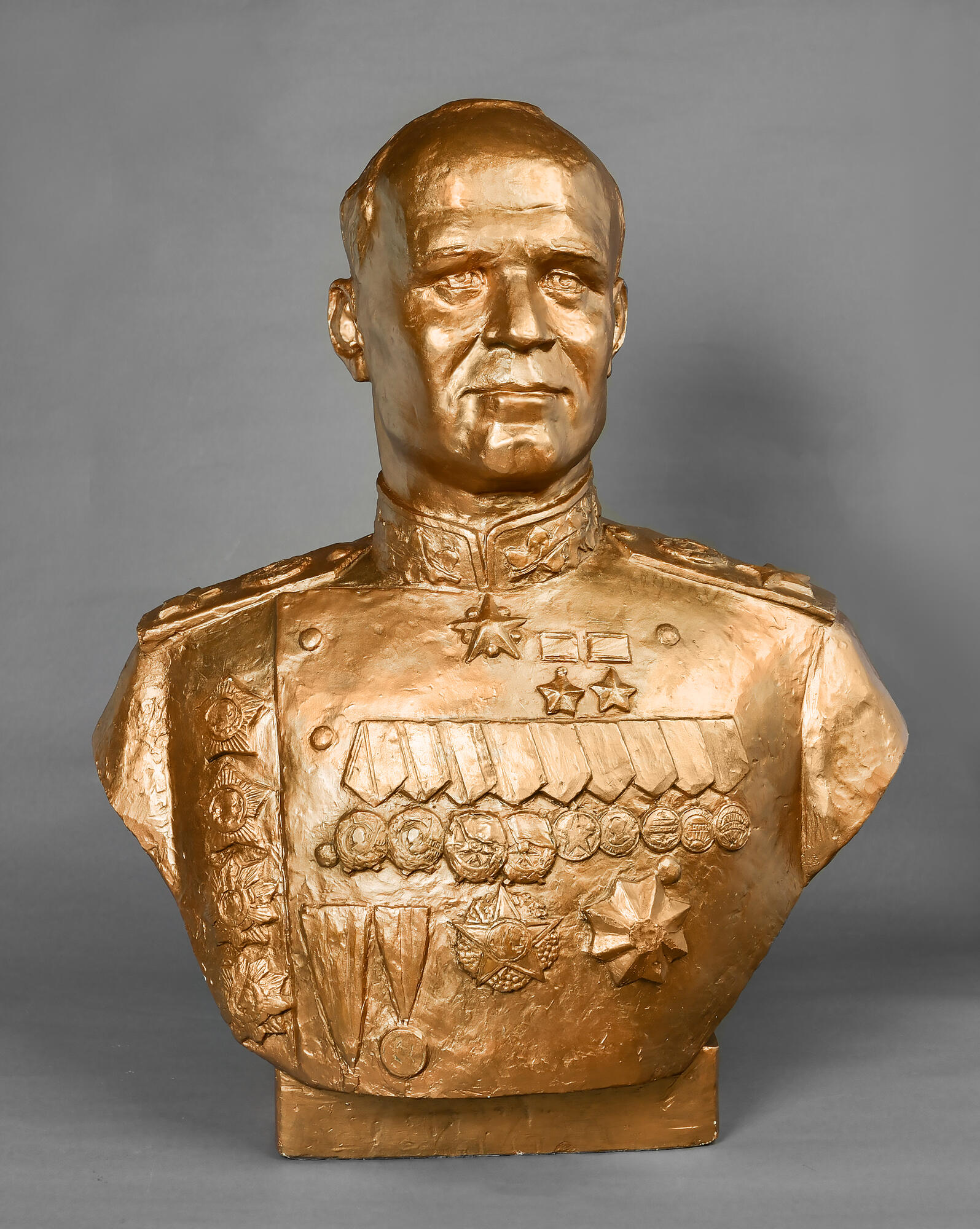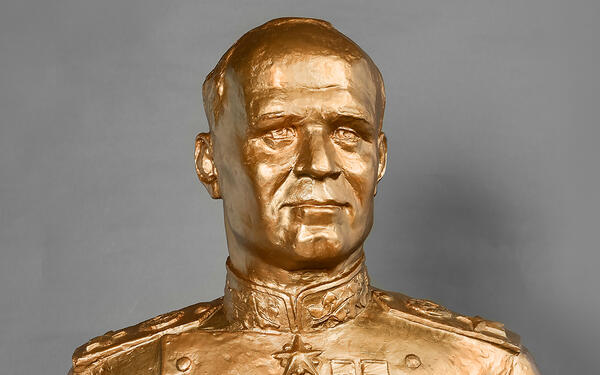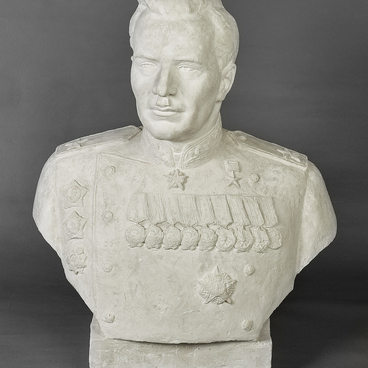Ivan Konev was born on December 16, 1897, in Lodeyno village, Nikolsky district, Vologda province (today it is called Podosinovsky district, Kirov region). He left a village school and a zemstvo college. Konev was drafted into the Russian Imperial Army in 1916. He served in the 2nd Heavy Artillery Brigade in Moscow, then finished a training artillery course and became the junior commander of the 2nd separate artillery division.
During the Civil War, Ivan Konev was the commissar in the ‘Grozny’ armored train. Serving in the ranks of the Workers' and Peasants' Red Army, he fought on the Eastern and Trans-Baikal fronts, In 1926 in the Mikhail Frunze Academy, Konev attended courses of upgrading the higher command staff. From July 1926 to March 1930, he was acting regimental commander, then assistant commander of a rifle division, and from December 1934 Konev served as commander of a rifle division.
In 1936 Konev passed his certification. According to the report preserved to this day, he had a persistent and firm character and fulfilled his training to a satisfactory standard. By the beginning of the Great Patriotic War, Ivan Konev had already received the rank of lieutenant general. He headed the 19th army formed in the North Caucasus Military District. Later he commanded the Kalinin, North-Western, Western, 2nd Ukrainian, and 1st Ukrainian fronts. Konev’s troops took part in the Battle for Moscow, liberated Ukraine, Poland, Czechoslovakia from the Nazis, stormed Berlin. On June 24, 1945, the Marshal participated in the Victory Day Parade on Red Square in Moscow.
After the Victory in the Great Patriotic War, Konev didn’t finish his military career.
He held the position of the Central Group Commander-in-Chief of Troops in Austria, the Land Forces First Deputy Commander-in-Chief, the USSR Armed Forces Deputy Minister, the Soviet Army Chief Inspector. From April 1960 to April 1962, Marshal Konev was the Soviet Troops Group Commander-in-Chief, and in May 1973 he again became the Inspector General of the Defence Ministry. Moreover, he was a member of the CPSU Central Committee and was also a deputy of the USSR Supreme Soviet from the first to the eighth convocations.
Konev received many awards: seven Orders of Lenin, three Orders of the Red Banner, two Orders of Suvorov I degree. He was also awarded two medals ‘Golden Star’ and the highest military commander’s order ‘Victory’. Marshal died on May 21, 1973. He was buried on Red Square near the Kremlin Wall.
During the Civil War, Ivan Konev was the commissar in the ‘Grozny’ armored train. Serving in the ranks of the Workers' and Peasants' Red Army, he fought on the Eastern and Trans-Baikal fronts, In 1926 in the Mikhail Frunze Academy, Konev attended courses of upgrading the higher command staff. From July 1926 to March 1930, he was acting regimental commander, then assistant commander of a rifle division, and from December 1934 Konev served as commander of a rifle division.
In 1936 Konev passed his certification. According to the report preserved to this day, he had a persistent and firm character and fulfilled his training to a satisfactory standard. By the beginning of the Great Patriotic War, Ivan Konev had already received the rank of lieutenant general. He headed the 19th army formed in the North Caucasus Military District. Later he commanded the Kalinin, North-Western, Western, 2nd Ukrainian, and 1st Ukrainian fronts. Konev’s troops took part in the Battle for Moscow, liberated Ukraine, Poland, Czechoslovakia from the Nazis, stormed Berlin. On June 24, 1945, the Marshal participated in the Victory Day Parade on Red Square in Moscow.
After the Victory in the Great Patriotic War, Konev didn’t finish his military career.
He held the position of the Central Group Commander-in-Chief of Troops in Austria, the Land Forces First Deputy Commander-in-Chief, the USSR Armed Forces Deputy Minister, the Soviet Army Chief Inspector. From April 1960 to April 1962, Marshal Konev was the Soviet Troops Group Commander-in-Chief, and in May 1973 he again became the Inspector General of the Defence Ministry. Moreover, he was a member of the CPSU Central Committee and was also a deputy of the USSR Supreme Soviet from the first to the eighth convocations.
Konev received many awards: seven Orders of Lenin, three Orders of the Red Banner, two Orders of Suvorov I degree. He was also awarded two medals ‘Golden Star’ and the highest military commander’s order ‘Victory’. Marshal died on May 21, 1973. He was buried on Red Square near the Kremlin Wall.


